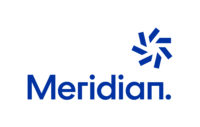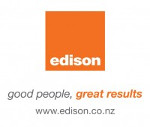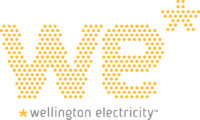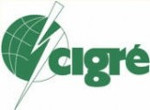Call for Papers
Abstract submissions are now open!
KEY DATES TO REMEMBER
| November 2020 | Abstract submissions open |
| Friday 12 February 2021 | Abstract submissions close |
| Monday 22 March 2021 | Notification of acceptance |
| Friday 9 April 2021 | Authors to confirm participation |
| Friday 14 May 2021 | Full paper due |
OVERVIEW
Paper abstracts are invited for the Electricity Engineers’ Association 2021 Conference to be held in Wellington on 29 June - 1 July.
The EEA Conference is the premier engineering/technical event for the New Zealand electricity supply industry and the 2019 conference attracted over 1,000 delegates and visitors.
The 2021 Conference will bring an exciting mix of keynote addresses, technical papers and interactive panel sessions focused on ‘Engineering, Technology and Innovation - In a Low Carbon Environment’.
Conference speakers will come from across the supply chain and represent the diversity of people, knowledge and technology that are shaping the future of the electricity supply industry in New Zealand and globally.
Technology, the political and regulatory environment, changing customer behaviours, evolving market forces and safety are some of the many drivers for change in the power industry.
ABSTRACT/PAPER SUBMISSION
Paper proposals are invited from all sectors and companies in the industry.
As a first step in the ‘Call for Papers’ we are inviting abstracts from industry stakeholders. Abstracts can include engineering and strategic analysis, research insights, case studies, and project results. Details of theme areas are provided below.
If you wish to submit an abstract for consideration for the Conference Programme, you must also intend to register for the Conference and Exhibition.
To access the Abstract Submission guidelines and terms and conditions, please CLICK HERE.
All abstracts are to be submitted electronically in accordance with the guidelines provided.
CALL FOR PAPERS CHECKLIST BEFORE SUBMITTING
Please make sure you have the following information ready before submitting your abstract:
- Contact details for the corresponding author (the person who will receive all communication regarding the submission)
- Presentation Title - should be no more than 20 words
- Theme - please decide which theme you like to allocate to your submission. CLICK HERE to view the list of themes
- Abstract - no more than 400 words, images are not allowed
- Photo of presenting author - please upload a recent professional portrait photo of each presenting author. Photos should be no larger than 200 px wide and should preferably be a jpeg file.
- Name and affiliation of all authors linked to the submission
- Biography of presenting author - biography word limit is 100 words
PAPER THEMES AND CONTEXT
“Engineering, Technology and Innovation - In a Low Carbon Environment”.
The EEA2021 Conference is showcasing ‘futures thinking’ within our industry. Our theme ‘Engineering, Technology and Innovation - In a Low Carbon Environment’ reflects the challenges of ‘now’ and ‘the future’ for us all. Theme areas include:
- Low carbon economy/climate change
- Customer-driven change
- Emerging technology and innovation
- Assets - management, resilience and planning
- Data-driven future
- Security and reliability of supply
- Distributed energy resources (DER)
- Open networks transformation
- Transport energy options
- Future skill requirements
- Safety - Critical risks and essential controls
- Smart systems and demand response
- Sustainability and environmental
The following are some paper “topic areas” to consider. (Note: Topics below are NOT in any priority order nor is it an exhaustive list of topics that could be offered).
Emerging Technologies – Opportunities, Integration and Impacts
- Distributed generation (e.g. solar, wind etc)
- Battery storage
- Emerging technology - trials and outcomes
- Electric transport infrastructure
- Demand response and pricing frameworks
- Hydrogen - a future power and energy storage source
- ‘Smart opportunities’ - cities, homes and appliances
- Micro-grids
- Network stability
- Customers technologies and smart multi energy solutions
- Artificial intelligence, robotics, and customer technologies
- Pilot projects
Existing Assets – Management, Optimisation and Integration
- Asset management – priorities and planning in uncertain times,
- Interoperability – common platforms, interactions and integrating new technologies and existing assets
- Assessment and maintenance of critical assets (e.g. transformers, poles, conductors, switchgear, earthing and substations)
- Ageing Infrastructure – lifecycle and reliability – maintain, refurbish or replace?
- Infrastructure design for new technologies and safety
- LV networks – monitoring, modelling and management
- Resilience
- Earthing
- Solar, battery and wind – Integration
- Maintenance strategies, standards and issues– poles, conductors, cables and other key assets
- Automation/SCADA/Fault resolution
- Power quality, security and stability
- Projects /case studies
- Work method selection – Live or de-energised
Data – Challenges and Opportunities
- Asset data – condition assessment, health indicators, planning and performance metrics
- LV and HV data for asset and system management
- System modelling and simulation
- Network forecasting and planning
- Cyber security/data protection
- Unmanned aerial vehicles
- Data visualisation
- Artificial intelligence, data science and machine learning - operational aspect of the grid.
- Peer-to-peer trading, Blockchain, Big Data, Edge intelligence and The Internet of Things
- SCADA & ADMS
Drivers for Change
- Low carbon economy
- Open networks
- Economic regulatory frameworks – security and reliability - impacts on customer service, investment, technology,
- Transmission - grid connection, technology, markets and priorities
- Electrifying transport and the impact on the power system
- Resilience
- International standardisation to support NZ adoption of technology, systems and products
- Regional challenges
Consumer/Community Focus & Market Models
- Behind the meter - Impact of smart consumer technology
- Customer/community demand response – aggregators, pricing, demand and resilience
- Distributed energy resource management systems (DeRMS)
- Unlocking customer data for insights on future directions
- Prosumers and future electricity markets
Future Workforce
- Future requirements and delivering on engineering, technical and analytic capability
- Developing/maintaining core skills, capability and engagement with our people
- Workforce diversity and inclusion – attracting and retaining talent
- Workforce gaps – trends and challenges
- Common Competency – opportunities and challenges
- Innovation contracting/service delivery
Safety, Health and Environment
- Critical risks – essential control strategies
- LV work management
- Mental health and wellbeing
- Asbestos
- SF6
- H&S challenges from emerging technologies
- Risk frameworks for work method selection
- Monitoring and auditing workplace and public safety
- Safety 2
- Shared learnings for better safety performance
- Hazardous substances management
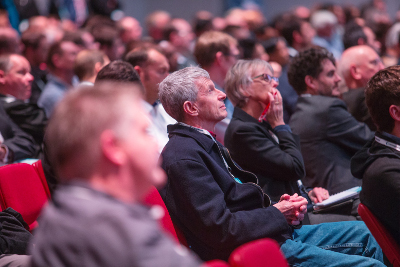 AUDIENCE
AUDIENCE
Previous events have been attended by industry CEOs and senior managers; engineering and asset management staff; technical, safety and business development managers; system analysts and planners; field staff and supervisors; engineering students and academics from NZ universities; Government officials; consultants and contracting staff; standards writers and other industry stakeholders.
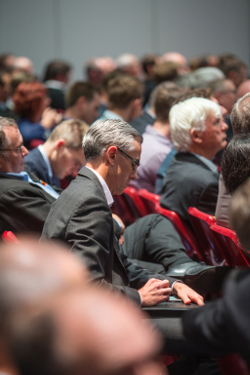 WHY YOU AND YOUR STAFF SHOULD OFFER A CONFERENCE PAPER IN 2021
WHY YOU AND YOUR STAFF SHOULD OFFER A CONFERENCE PAPER IN 2021
The writing and presentation of technical papers is an important part of every person’s professional development and training. It provides the best opportunity to share your experience and innovative work among enthusiastic and knowledgeable industry engineers.
The EEA Conference gives the opportunity to profile and share information on new engineering knowledge, practices or technology; and a platform for a company or individual to get recognition as an engineering leader.
University and Polytech students are encouraged to submit paper proposals. EEA has a strong commitment to the future development of our industry engineering students and to integrate student learning with the Conference experience. Student papers keep industry informed on current research projects, whilst the Conference provides the opportunity for them to meet industry engineers and employers.
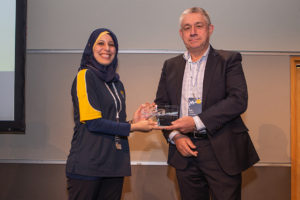 BEST PAPER AWARDS
BEST PAPER AWARDS
All papers submitted are eligible for the Best Paper Awards which are awarded to papers of outstanding quality. The Best Paper Awards categories include:
- EEA Member
- Best Paper Presentation (sponsored by the IET)
- Student
- Non-Member
For further information on these awards please click here.



